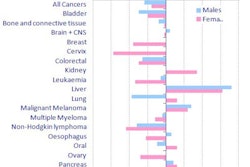Scientists at Weill Cornell Medical College used genetic methods to successfully repair cleft lips in mice embryos specially engineered for the study of cleft lip and cleft palate (Developmental Cell, October 18, 2011, Vol. 21:4, pp. 627-641).
Using what they say is the first multigenic mouse model of cleft lip with or without cleft palate, Licia Selleri, MD, PhD, an associate professor of cell and developmental biology at Weill Cornell Medical College, and her co-authors uncovered the role of genes for Pbx (pre-B cell leukemia transcription factor) proteins in coordinating cellular signaling behaviors crucial for the development of these abnormalities.
Dr. Selleri has studied Pbx proteins for many years and has previously demonstrated their involvement in organ and skeletal development. In this latest study, she and her collaborators tested whether these proteins also play a role in facial development by using mutant mice that lacked various combinations of three Pbx genes in the ectoderm.
They found that only mutations affecting multiple Pbx genes resulted in complete cleft lip, with or without cleft palate, in all the mouse embryos with these compound mutations. When they used genetic methods to restore Wnt activity -- a network of proteins best known for their roles in embryogenesis and cancer -- in the ectoderm of mouse embryos with compound Pbx mutations, the cleft lips in all of these animals completely disappeared.
"To my knowledge, this is the first time that anyone has corrected this defect in embryos, and we really show here that Wnt is a critical factor," Dr. Selleri said in a press release. "This is a very provocative result because it opens a completely new avenue of strategies for tissue repair."



















